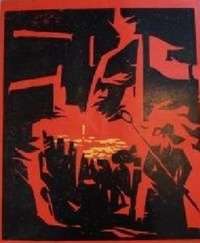Mreža

- Posts : 41623
Join date : 2012-02-12
Location : wife privilege
- Post n°476
 Re: Mreža
Re: Mreža
Ето зашто им не треба ништа дати.
_____
cousin for roasting the rakija
И кажем себи у сну, еј бре коњу па ти ни немаш озвучење, имаш оне две кутијице око монитора, видећеш кад се пробудиш...

- Posts : 3013
Join date : 2020-06-19
Location : bizarr nők hazája
- Post n°477
 Re: Mreža
Re: Mreža
+1
nikad nalogom
nikad nalogom

_____
 Hong Kong dollar, Indian cents, English pounds and Eskimo pence
Hong Kong dollar, Indian cents, English pounds and Eskimo pence 

- Posts : 7229
Join date : 2019-11-04
- Post n°478
 Re: Mreža
Re: Mreža
Internet nestaje, sugeriše najnovija studija, jer je ogroman broj web stranica i „onlajn“ sadržaja, nepovratno izgubljen. Internet se često i neopravdano smatra mestom gde jednom postavljen sadržaj, traje zauvek. Ali, prema novom istraživanju, veliki delovi toga se nepovratno gube u procesu premeštanja ili brisanja web stranica.
Da bi potkrepili ovu tvrdnju navodi se jedan alarmantan primer po kome od svih web stranica koje su postojale 2013. godine, čak 38 % je u ovom trenutku bespovratno izgubilo kompletan njihov sadržaj. Najgore je to što se ne radi samo o starijim stranicama, već i one novijeg datuma nepovratno nestaju. Čak 8 % web stranica koje su postojale 2023. više nije dostupno.
Sve to se dešava na inače funkcionalnim web lokacijama, pokazala je studija koju je sproveo Pew Research Center, i to u procesu premeštanja i brisanja stranica, a ne nestanka čitave web prezentacije ili web sajta.
...
https://benchmark.rs/vesti/softver-i-servisi/internet-polako-ali-sigurno-nestaje/

- Posts : 5594
Join date : 2016-01-26
- Post n°479
 Re: Mreža
Re: Mreža
Пошто је скоро све приватно, не постоји никакав подстицај да се старе странице чувају.
Фирма пропадне и њен вебсајт нестане или се деси редизајн и странице више нема.
Архиве више нико не држи јер је то чист трошак.
Фирма пропадне и њен вебсајт нестане или се деси редизајн и странице више нема.
Архиве више нико не држи јер је то чист трошак.
_____
Burundi is an exception among other nations because it is a country which gave God first place, a God who guards and protects from all misfortune.
Burundi... opskurno udruženje 20ak levičarskih intelektualaca, kojima je fetiš odbrana poniženih i uvredjenih.

- Posts : 3013
Join date : 2020-06-19
Location : bizarr nők hazája
- Post n°480
 Re: Mreža
Re: Mreža
speak for yourselfЈанош Винету wrote:Архиве више нико не држи јер је то чист трошак.

_____
 Hong Kong dollar, Indian cents, English pounds and Eskimo pence
Hong Kong dollar, Indian cents, English pounds and Eskimo pence 

- Posts : 4836
Join date : 2016-06-09
Location : gotta have those beans
- Post n°481
 Re: Mreža
Re: Mreža
Arhive postoje, naravno, samo nisu javno dostupne.
Storage cheap, compute tu i tamo, ramčina expensive.
Storage cheap, compute tu i tamo, ramčina expensive.

- Posts : 19200
Join date : 2014-12-12
- Post n°482
 Re: Mreža
Re: Mreža
konjski nil wrote:speak for yourselfЈанош Винету wrote:Архиве више нико не држи јер је то чист трошак.

Mali crni kompjuter burunđanskog Broja Jedan.

- Posts : 35771
Join date : 2012-02-10
- Post n°483
 Re: Mreža
Re: Mreža

Inace, tu je i arhiva, kakva-takva. vide se naslovne strane i poneka unutrasnja https://web.archive.org/
_____
★
Uprava napolje!

- Posts : 15552
Join date : 2016-03-28
- Post n°484
 Re: Mreža
Re: Mreža
Јанош Винету wrote:Пошто је скоро све приватно, не постоји никакав подстицај да се старе странице чувају.
Фирма пропадне и њен вебсајт нестане или се деси редизајн и странице више нема.
Архиве више нико не држи јер је то чист трошак.
Koliko se sećam sl članka, veći problem je nastao kada su probali da prate linkove sa presuda ispred američkog vrhovnog suda i ministarstva pravde pa utvrdili da je sličan procenat linkova mrtav.wrote:Arhive postoje, naravno, samo nisu javno dostupne.
Storage cheap, compute tu i tamo, ramčina expensive.
Isto je važilo za neke akademske reference i izvore.
_____
Što se ostaloga tiče, smatram da Zapad treba razoriti
Jedini proleter Burundija
Pristalica krvne osvete

- Posts : 11338
Join date : 2014-10-28
- Post n°485
 Re: Mreža
Re: Mreža
ficfiric wrote: https://web.archive.org/
Zju, sad sam otišla da vidim da li ima arhiva mog prvog foruma, i ima

Osećam se kao da sam našla neke davno izgubljene dnevnike


_____
most of us probably not getting better
but not getting better together

- Posts : 7229
Join date : 2019-11-04
- Post n°486
 Re: Mreža
Re: Mreža
https://www.theverge.com/2024/6/3/24170305/microsoft-windows-recall-ai-screenshots-security-privacy-issues
Microsoft is about to launch a new AI-powered Recall feature that screenshots everything you do on your PC. Recall is part of the new Copilot Plus PCs that are debuting on June 18th, but experts who have tested the feature are already warning that Recall could be a “disaster” for cybersecurity.
Recall is designed to use local AI models to screenshot everything you see or do on your computer and then give you the ability to search and retrieve anything in seconds. There’s even an explorable timeline you can scroll through. Everything in Recall is designed to remain local and private on-device, so no data is used to train Microsoft’s AI models.
Despite Microsoft’s promises of a secure and encrypted Recall experience, cybersecurity expert Kevin Beaumont has found that the AI-powered feature has some potential security flaws. Beaumont, who briefly worked at Microsoft in 2020, has been testing out Recall over the past week and discovered that the feature stores data in a database in plain text. That could make it trivial for an attacker to use malware to extract the database and its contents.
“Every few seconds, screenshots are taken. These are automatically OCR’d by Azure AI, running on your device, and written into an SQLite database in the user’s folder,” explains Beaumont in a detailed blog post. “This database file has a record of everything you’ve ever viewed on your PC in plain text.”
Beaumont shared an example of the plain text database on X, scolding Microsoft for telling media outlets that a hacker cannot exfiltrate Recall activity remotely. The database is stored locally on a PC, but it’s accessible from the AppData folder if you’re an admin on a PC. Two Microsoft engineers demonstrated this at Build recently, and Beaumont claims the database is accessible even if you’re not an admin.
The fear is that Recall makes it easier for malware and attackers to steal information. InfoStealer trojans already exist to steal credentials and information from PCs, and hackers currently distribute this type of malware to steal and sell information. “Recall enables threat actors to automate scraping everything you’ve ever looked at within seconds,” says Beaumont.
...

- Posts : 8342
Join date : 2014-10-28
Location : imamate of futa djallon
- Post n°487
 Re: Mreža
Re: Mreža
na mom prvom forumu iz 2002 smo bili samo pontijak i ja, od ljudi koje znatebela maca wrote:ficfiric wrote: https://web.archive.org/
Zju, sad sam otišla da vidim da li ima arhiva mog prvog foruma, i ima
Osećam se kao da sam našla neke davno izgubljene dnevnike

a na mom drugom forumu iz circa 2003-05 smo bili tesa i ja.
tako da mi je malo tesko pada da budem nostalgican, if you get what i mean

_____
i would like to talk here about The Last of Us on HBO... and yeah, yeah i know.. the world is burning but lets just all sit and talk about television. again - what else are we doing with ourselves ? we are not creating any militias. but my god we still have the content. appraising content is the american modus vivendi.. that's why we are here for. to absorb the content and then render some sort of a judgment on content. because there is a buried hope that if enough people have the right opinion about the content - the content will get better which will then flow to our structures and make the world a better place

- Posts : 11338
Join date : 2014-10-28
- Post n°488
 Re: Mreža
Re: Mreža
Ja sam na ovom mom 2004 upoznala najbolju drugaricu i još gomilu ljudi sa kojima se družim i dalje
bio je i teša ali baš kratko
bio je i teša ali baš kratko
_____
most of us probably not getting better
but not getting better together

- Posts : 7229
Join date : 2019-11-04
- Post n°489
 Re: Mreža
Re: Mreža
Matthew King , June 5, 2024
Spreadsheet Assassins
A short history of “software as a service”
Today, nearly every consumer product is trying to wedge its way into our monthly bank statements. It’s not just the hundreds of streaming video services that have replaced the cable bundle. There are now subscriptions for toothbrushes, socks, underwear, shaving razors, lightbulbs, doorbells, Taco Bell, dog pee pads, New York Times games, and of course X (formerly known as Twitter). Luxury car makers BMW and Tesla have had the gall to consider charging customers monthly fees for access to features like heated seats. Soon, the day will come when an already satirical $300 “smart” toaster will require a $5/month ransom to keep its firmware operable. When every consumer product becomes a digital interface, even the things we own can be held hostage, or taken away.
In recent years, software itself has undergone this phase change. Popular tools like Microsoft Word and Adobe Photoshop are no longer programs you buy but subscriptions you pay to access, increasingly through a web browser, monthly or annually, in perpetuity. While hardware companies still juice their sales with new product versions every few years, software is now one product, continuously updated. This booming sector is called “software-as-a-service,” or “SaaS,” as it’s affectionately known by its crass operators. Far beyond consumer applications, enterprise SaaS products have ensnared the digital plumbing of major industries and public infrastructures. Today, the category is worth over $3 trillion collectively and touted by Silicon Valley’s favorite venture capital blowhards as the most profitable business model in history.
Why does everyone want to be in SaaS? One reason is that investors are addicted to it. Time and again, the public stock market values companies with “recurring” revenue many times higher than the volatility of one-time license or hardware sales. Over the past decade, SaaS has grown five-times faster than the average non-SaaS company, spawning a plethora of venture-backed, browser-based tools vying to organize all kinds of tedious business workflows. Their colonizing ambitions often hide behind cutesy names like Shopify (e-commerce), Snowflake (data cloud computing), Mailchimp (email automation), Toast (restaurant sales), MindBody (fitness studios), or OpenGov (local municipalities).
Even with a small customer base, SaaS companies can print money for years, while doing little to improve their products.
Investors also prize the SaaS model’s minimal upfront costs. While most companies require physical offices, factories, or raw materials to produce their product, a digital interface runs on a few human programmers and a monthly bill from Google or AWS, whose power-hungry, water-guzzling “cloud” data centers now have “a greater carbon footprint than the airline industry,” according to anthropologist Steven Gonzalez Monserrate. As a SaaS startup scales, sales and customer support staff pay for themselves, and the marginal cost to serve your one-thousandth versus one-millionth user is near-zero. The result? Some SaaS companies achieve gross profit margins of 75 to 90 percent, rivaling Windows in its monopolistic heyday. Even the reigning credit-card duopoly of Visa and Mastercard wield a mere 51 percent net margin.
But this golden goose has finally stumbled in recent years. First, the pandemic tech bubble poured gobs of venture money into every possible remote-anything startup, flooding the market with an oversupply of vendors. Then came the “SaaS crash” of 2022, when cost-cutting enterprises realized they were paying more for software than health care, while 53 percent of SaaS licenses went unused. Now, the rise of AI-powered developer tools threaten to deliver 90 percent cheaper copycats of popular SaaS products. Business Insider dubbed it “the final phase of software eating the world,” invoking VC Marc Andreessen’s obnoxious catchphrase. In this case, software is eating itself—a kind of digital cannibalization—and it feels like a fitting conclusion. Because there’s also long been an open secret in SaaS: the value proposition behind many of these products is bafflingly thin.
As one CEO of a content management platform recently put it: “The biggest incumbent in [business-to-business] SaaS is some spreadsheets and one additional headcount.” Or, another CEO of a customer success management platform: “Every SaaS application pitch ever (including ours): 1. Your data is in lots of places 2. So you use spreadsheets 3. We bring it all together 4. Profit.” Or, another CEO-turned-MAGA ghoul, who invests in dozens of whatever-management platforms: “Find a commonly used spreadsheet (eg cap tables) and turn it into a dashboard (eg Carta). Replace email attachments with workflows. Spreadsheets are the long tail of datasets that don’t have their own SaaS tool yet.” Why let a business-critical workflow exist in some generic document, easily shared across systems and possibly fulfilling every task requirement, when you could corral those actions into a gated domain, gussy up the UI to imply value or progress, and charge a monthly subscription for it?
The ambitions of SaaS didn’t used to be so bloodless, or narrow-minded. Salesforce arguably launched the category in the early 2000s with its browser-based customer relationship management tool. The company’s “End of Software” campaign promised to empower knowledge workers with applications they could access from anywhere, and automation to replace time-consuming manual data entry. Less discussed was the Faustian bargain of moving your data and workflows into a proprietary system. “In the future, all software will be delivered in the cloud,” founder Marc Benioff said in an interview. “Businesses will be freed from buying infrastructure that goes out of date, depreciates in value, and requires a hefty investment to keep running. People will access all the services they need via the Web and have them upgraded without doing a thing.”
For all this philosophical talk, the real cheat code in SaaS has always been a first-mover advantage. A platform like Salesforce touts itself as a “single source of truth” because it only succeeds if users treat it as such. (The common mantra on revenue teams goes, “If it’s not in Salesforce, it didn’t happen.”) Most SaaS management software is simply a way to keep people and tasks aligned; a seven-figure software license can do that, but so can a seven-cent Post-it note. More than the quality of any given code, the value of the largest SaaS companies is their locked-in network effects. Once a piece of software has entrenched itself in the bowels of corporate IT infrastructure, it’s a nightmare to dislodge. Imagine the switching costs to migrate millions of records, replace thousands of systems, navigate hundreds of data privacy approvals, and retrain every employee, while keeping a local government or hospital running. Consider the colleges and school districts terrorized for decades by a crappy EdTech software, courtesy of a regional sales rep and nephew of the head administrator. Even with a small customer base, SaaS companies can print money for years, while doing little to improve their products, often letting the core service and basic functionality degrade, like so many city landlords sitting on old buildings and prime real estate.
Rent-seeking has become an explicit playbook for many shameless SaaS investors. Private equity shop Thoma Bravo has acquired over four hundred software companies, repeatedly mashing products together to amplify lock-in effects so it can slash costs and boost prices—before selling the ravaged Franken-platform to the highest bidder. Anti-monopolist author Matt Stoller has called Thoma Bravo the “bridge trolls of enterprise software,” and its recent forays into cybersecurity arguably caused the worst software hack in American history. After years of dismantling Solarwinds, a ubiquitous network management software, Thoma Bravo and Silver Lake dumped $286 million of shares in December 2020, the day before the company disclosed a staggering malware breach. The “Sunburst” cyberattack exposed data from California hospitals, the Department of the Treasury, the U.S. nuclear weapons agency, and dozens of other agencies and major companies. While the root cause is still under investigation, multiple lawsuits and reports describe a culture of cost-cutting and frequent security lapses. “Typically Thoma Bravo raises prices and cuts quality, but the affected constituency group—corporate IT managers—don’t have a lot of power or agency,” Stoller writes of this precarious stalemate, with potential geopolitical implications. “Their superiors don’t want to think about a high-cost but low-probability event, especially if every other big institution would be hit as well.”
A missed payment can pull the plug on an essential service, or block access to a critical, life-impacting dataset.
But how low probability is it, really? It’s not hard to find examples of shoddy software and “SaaS capture” affecting vast swaths of society. In the Kafkaesque realm of health care, software giant Epic’s 1990s-era UI is still widely used for electronic medical records, a nuisance that arguably puts millions of lives at risk, even as it accrues billions in annual revenue and actively resists system interoperability. SAP, the antiquated granddaddy of enterprise resource planning software, has endured for decades within frustrated finance and supply chain teams, even as thousands of SaaS startups try to chip away at its dominance. Salesforce continues to grow at a rapid clip, despite a clunky UI that users say is “absolutely terrible” and “stuck in the 80s”—hence, the hundreds of “SalesTech” startups that simplify a single platform workflow (and pray for a billion-dollar acquihire to Benioff’s mothership). What these SaaS overlords might laud as an ecosystem of startup innovation is actually a reflection of their own technical shortcomings and bloated inertia.
Despite increased competition, more companies than ever are trying to crack the lucrative SaaS market. Over 1,500 software startups are focused on billing and invoicing alone. The glut of tools extends to sectors without any clear need for complex software: no fewer than 378 hair salon platforms, 166 parking management solutions, and 70 operating systems for funeral homes and cemeteries are currently on the market. Billions of public pension and university endowment dollars are being burned on what amounts to hackathon curiosities, driven by the machinations of venture capital and private equity. To visit a much-hyped “demo day” at a startup incubator like Y Combinator or Techstars is to enter a realm akin to a high-end art fair—except the objects being admired are not texts or sculptures or paintings but slightly nicer faces for the drudgery of corporate productivity. Each year, untold numbers of aspiring nuclear engineers and environmental scientists join the ranks of software developers and product marketers, writing and selling SaaS code for problems that might not exist.
The recent market turbulence has led some to wonder where the ceiling may be. “We’ll spend $1 Trillion on enterprise SaaS next year per Gartner,” notes one serial VC and founder of the annual SaaStr event, in a recent Linkedin post. “Can it really get to $10 Trillion? The entire U.S. economy is only $27 Trillion.” On the flip side, IT managers and knowledge workers have to be wondering if the alleged convenience of these apps are worth the lock-in costs, which compound over time. In SaaS, a missed payment can pull the plug on an essential service, or block access to a critical, life-impacting dataset. And the price of that monthly bill will only rise, likely faster than the rate of inflation.
As popular as SaaS has become, much of the modern economy still runs on the humble, unfashionable spreadsheet. For all its downsides, there are virtues. Spreadsheets are highly interoperable between firms, partly because of another monopoly (Excel) but also because the generic .csv format is recognized by countless applications. They offer greater autonomy and flexibility, with tabular cells and formulas that can be shaped into workflows, processes, calculators, databases, dashboards, calendars, to-do lists, bug trackers, accounting workbooks—the list goes on. Spreadsheets are arguably the most popular programming language on Earth. The hundreds of millions of global users of Microsoft Office and Google Suite far outnumber JavaScript’s roughly twenty million developers. In many cases, spreadsheets—the cockroaches of corporate IT—continue to thwart the hordes of twentysomething SaaS sales reps, sending mass emails and making cold calls from converted warehouses in Austin or Antwerp.
Whether it’s SaaS, superapps, blockchains, or whatever format comes next, the trajectory of recent Silicon Valley “innovation” remains the same: a hint of genuine productivity and a heavy dose of old-school land-grabbing and value extraction. Software in its many varieties impose a growing tax across modern life, whether for the lowly consumer aghast at a three-figure toaster subscription, or the Fortune 500 CEO, handed a list of dozens of six-figure software tools. The grift seems to be reaching a climax, and the bubble can’t pop soon enough.

- Posts : 7665
Join date : 2020-03-05
- Post n°490
 Re: Mreža
Re: Mreža
Bernard Williams writing about the internet (2002). pic.twitter.com/LBeWWDpBEA
— Daniel Callcut (@danielcallcut) August 12, 2024
_____
"Burundi je svakako sharmantno mesto cinika i knjiskih ljudi koji gledaju stvar sa svog olimpa od kartona."
“Here he was then, cruising the deserts of Mexico in my Ford Torino with my wife and my credit cards and his black-tongued dog. He had a chow dog that went everywhere with him, to the post office and ball games, and now that red beast was making free with his lion feet on my Torino seats.”

- Posts : 52531
Join date : 2017-11-16
- Post n°491
 Re: Mreža
Re: Mreža
Pa me bas. Bar to je muceni N.Ferguson dobro objasnio. Ne srednji vek nego bas pocetak modernog doba - kad je svako ko moze krenuo da stampa sve i svasta. To je na kraju dovelo do napretka, ali ne pre velikih pokolja.
Razlika je u tome sto ipak postoji ogranicen broj ljudi koji moze nesto da stampa, a ovo moze ko god hoce i tu lici na to "selo". Medjutim, u selu postoji nekakva vlast. U ovom "globalnom selu", osim u ekstremnim slucajevima - ne.
Tako da je ovo ipak nesto novo, ali mi nemamo za sta da se iskustveno uhvatimo osim za pronalaz stampe ili pak masovno opismenjavanje pre 100tinjak i vise godina (sto je takodje "lepo" proslo)
Razlika je u tome sto ipak postoji ogranicen broj ljudi koji moze nesto da stampa, a ovo moze ko god hoce i tu lici na to "selo". Medjutim, u selu postoji nekakva vlast. U ovom "globalnom selu", osim u ekstremnim slucajevima - ne.
Tako da je ovo ipak nesto novo, ali mi nemamo za sta da se iskustveno uhvatimo osim za pronalaz stampe ili pak masovno opismenjavanje pre 100tinjak i vise godina (sto je takodje "lepo" proslo)

- Posts : 5594
Join date : 2016-01-26
- Post n°492
 Re: Mreža
Re: Mreža
Написао сам дужи текст али своди се на ово:
Зна се ко највише прави смутње, сплеткари у циљу политике ”завади па владај”, диже хистерије преко опскурних канала, прави пометње, збрке, лажне вести, забуне, шири неслогу и продубљује опскурне теорије завере, иницира мржњу и наводи на злочин.
Држава и њен апарат.
Зна се ко највише прави смутње, сплеткари у циљу политике ”завади па владај”, диже хистерије преко опскурних канала, прави пометње, збрке, лажне вести, забуне, шири неслогу и продубљује опскурне теорије завере, иницира мржњу и наводи на злочин.
Држава и њен апарат.
_____
Burundi is an exception among other nations because it is a country which gave God first place, a God who guards and protects from all misfortune.
Burundi... opskurno udruženje 20ak levičarskih intelektualaca, kojima je fetiš odbrana poniženih i uvredjenih.

- Posts : 11623
Join date : 2018-03-03
Age : 36
Location : Hotline Rakovica
- Post n°493
 Re: Mreža
Re: Mreža
Vilmos Tehenészfiú wrote:Bernard Williams writing about the internet (2002). pic.twitter.com/LBeWWDpBEA
— Daniel Callcut (@danielcallcut) August 12, 2024
Nazalost, tu se ne radi samo o politici. Internet i algoritmi polako dovode drustvo u situaciju da vise niko ni sa kim nece moci da razgovara, jer svako od nas sada ima individualno skrojeno iskustvo. Nemamo vise sta zajednicko o cemu bi mogli da pricamo. Jedino se jos uvek sport i vreme (donekle) drze.
Naravno da tu postoje neki vektori, ljudi sa istim vajbom, ali sve vise na nekom globalnom, internet nivou. Dok sa covekom pored sebe sve manje imas tema za razgovor.

- Posts : 7229
Join date : 2019-11-04
- Post n°494
 Re: Mreža
Re: Mreža
Trijumf individualizma, nad kojim lebde razne forme pokušaja kontrole i kanalisanja infoa, moći, poretka, još neizgrađene u novim okolnostima odozdo.

- Posts : 41623
Join date : 2012-02-12
Location : wife privilege
- Post n°495
 Re: Mreža
Re: Mreža
Шетајући оно у суботу по штрафти на Данима пива, примећујемо да је раја прележала мобилни. Пре десет година је било нормално да седе четворо за столом и свако гледа у свој екран. Више не, сад се то свело на причу у трку, тј прича се у ходу или кад баш зазвони, ал' кад се седне, телефон се вади само кад има нешто да се покаже на њему, или да се провери неки податак.
_____
cousin for roasting the rakija
И кажем себи у сну, еј бре коњу па ти ни немаш озвучење, имаш оне две кутијице око монитора, видећеш кад се пробудиш...

- Posts : 10404
Join date : 2020-06-19
- Post n°496
 Re: Mreža
Re: Mreža
Летећи Полип wrote:Vilmos Tehenészfiú wrote:Bernard Williams writing about the internet (2002). pic.twitter.com/LBeWWDpBEA
— Daniel Callcut (@danielcallcut) August 12, 2024
Nazalost, tu se ne radi samo o politici. Internet i algoritmi polako dovode drustvo u situaciju da vise niko ni sa kim nece moci da razgovara, jer svako od nas sada ima individualno skrojeno iskustvo. Nemamo vise sta zajednicko o cemu bi mogli da pricamo. Jedino se jos uvek sport i vreme (donekle) drze.
Naravno da tu postoje neki vektori, ljudi sa istim vajbom, ali sve vise na nekom globalnom, internet nivou. Dok sa covekom pored sebe sve manje imas tema za razgovor.
Nema gledam više ništa, druže, nema tu više šta da gleda. Na olimpijadi, hej, olimpijada, muškarci koji se predstavljaju kao žene biju prave žene. Baška što je sve to dopingovano, samo se sad koriste nove vrste droga koje MOK testovi ne mogu da ptkriju. A Amerikance ionako niko nikad ozbiljno nije ni kontrolisao.
Kakava vrućina, sve je ovo laž, to jest, stvano je vruće ali sve je ovo vještački izazvano. Eno, gledaj, avion leti a nigdje trga iznad njega. Đe je sad dim? Nema ga, zato što to i nije nikakav dim, vać nas ko zna čim posipaju decenijama. Rusi pred paradu pobjede rastjeraju oblake avionima. Ovi to rade iznad nas, kakav kurac afrički talas, saharski pijesak i ostalo, sve je to vještački izazvano da i od nas naprave pustinju.
_____
Međuopštinski pustolov.
Zli stolar.

- Posts : 11623
Join date : 2018-03-03
Age : 36
Location : Hotline Rakovica
- Post n°497
 Re: Mreža
Re: Mreža
Ali nisu ti najcrnji. Najgori su oni kojima su teorije zavere bljak, ali i globalno zagrevanje je besmislica. Sramno je biti nacista, ali je i pederski lobi zavladao svetom. Vlast je uzasna, ali ni opozicija nije nista bolja. Takvih je, ja bih rekao, mnogo vise. Narcisoidnost, malogradjanija, i jedan banalni, povrsni konzervativizam.

- Posts : 41623
Join date : 2012-02-12
Location : wife privilege
- Post n°498
 Re: Mreža
Re: Mreža
Чувају ту конзерву, а да их питаш шта има у њој, не би умели да наређају.
_____
cousin for roasting the rakija
И кажем себи у сну, еј бре коњу па ти ни немаш озвучење, имаш оне две кутијице око монитора, видећеш кад се пробудиш...

- Posts : 41623
Join date : 2012-02-12
Location : wife privilege
- Post n°499
 Re: Mreža
Re: Mreža
У фасцикли „Олош“, куд усмеравам спем, последњих месеци више од пола је на руском. Ваљда што ми је пола сајта на ћирилици, шта ли. А нуде ми да шаљу спем у моје име, цијена ситница, милион имејлова 3900 рубаља.
_____
cousin for roasting the rakija
И кажем себи у сну, еј бре коњу па ти ни немаш озвучење, имаш оне две кутијице око монитора, видећеш кад се пробудиш...

- Posts : 4503
Join date : 2016-09-29
- Post n°500
 Re: Mreža
Re: Mreža
Летећи Полип wrote: Vlast je uzasna, ali ni opozicija nije nista bolja.
"od vucica je jedino opozicija gora"
_____
THE space age is upon us. Rockets are leaving our globe at
speeds unheard of only a few years ago, to orbit earth, moon, and
sun. People have visited the moon, we have sent space probes to
all but one of the planets, and words like "orbit" and "satellite" are
picked up by children in the nursery.



 by паће Tue May 28, 2024 6:53 pm
by паће Tue May 28, 2024 6:53 pm
 Летећи Полип
Летећи Полип